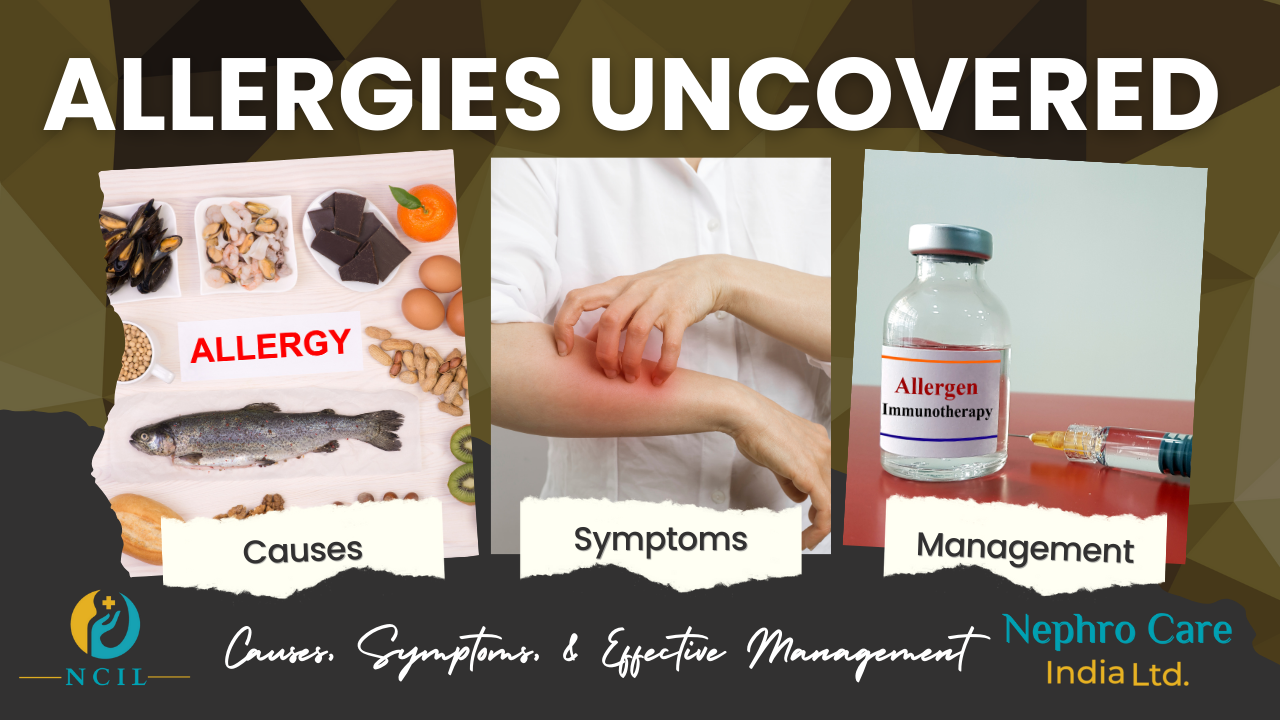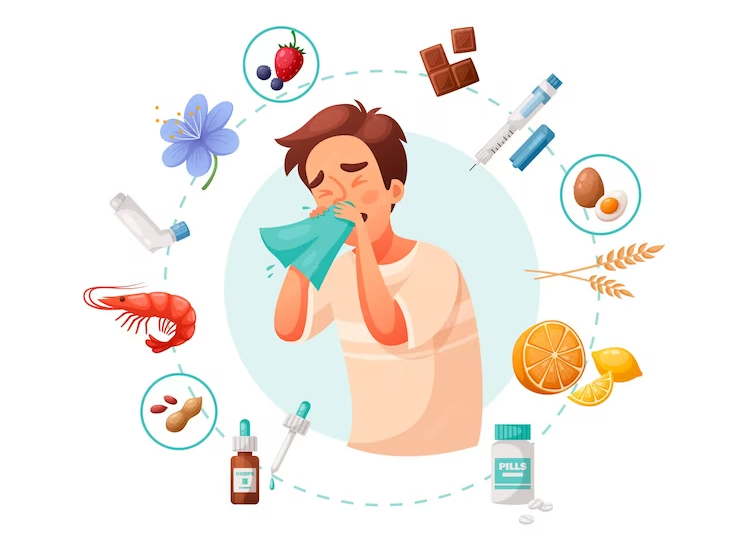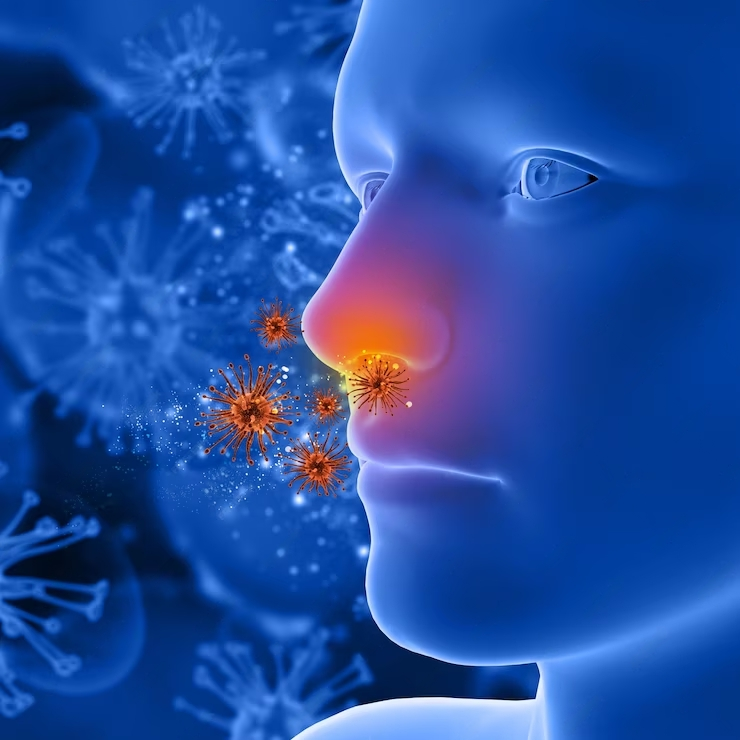
- 371
- 0
Allergies Uncovered: Causes, Symptoms, & Effective Management
Allergies are a predominant health anxiety disturbing millions of individuals worldwide. From seasonal hay fever to life-threatening reactions to certain foods, allergies can significantly impact one’s quality of life. Understanding the triggers, recognizing symptoms, and adopting effective management strategies are crucial steps in navigating allergies successfully. In this blog, we’ll share a narrative highlighting allergic triggers, symptoms, and management techniques.

Allergies occur when the immune system reacts abnormally to substances that are typically harmless to most people. These substances, known as allergens, trigger the release of chemicals such as histamine, leading to allergic reactions. Allergens can vary widely and may include pollen, dust mites, pet dander, certain foods, insect venom, and medications.
Causes of Allergic Reactions:
Common allergens include:

- Pollen: Pollen from trees, grasses, and weeds can generate seasonal allergic rhinitis (hay fever) in predisposed individuals.
- Dust Mites: These microscopic creatures increase in domestic dust and can trigger allergic reactions, particularly in individuals with dust mite allergies.
- Pet Dander: Proteins found in the skin flakes, saliva, and urine of pets can provoke allergic reactions in sensitive individuals.
- Foods: Common food allergens contain peanuts, tree nuts, milk, eggs, wheat, soy, fish, and shellfish.
For further information on selecting non-allergenic options, please reach out👇
- Insect Venom: Stings from bees, hornets, and fire ants can cause sensitized reactions ranging from mild swelling to anaphylaxis.
- Medications: Few medications, such as antibiotics (e.g., penicillin), nonsteroidal anti-inflammatory drugs (NSAIDs), and chemotherapy drugs, can prompt allergic reactions in susceptible individuals.
Symptoms of Allergic Reactions:
Common symptoms include:

- Nasal blocking
- Sneezing
- Runny or itchy nose
- Watery or itchy eyes (allergic conjunctivitis)
- Skin rashes or hives
- Itchy skin
- Swelling of the lips, tongue, throat, or face
- Difficulty breathing or wheezing
- Abdominal pain, nausea, or vomiting (food allergies)
- Anaphylaxis: A severe, life-threatening allergic reaction characterized by swelling of the throat, rapid pulse, drop in blood pressure, and loss of consciousness.
Management of Allergies:
While allergies cannot be cured, they can be effectively managed through various strategies, including:
- Allergen Avoidance: Identifying and avoiding triggers is the cornerstone of allergy management. This may involve keeping indoor environments free of dust mites, pet dander, and mold, as well as avoiding exposure to pollen and other outdoor allergens.
- Medications: Over-the-counter and prescription medications can help ease allergy symptoms. These may include antihistamines, decongestants, nasal corticosteroids, and allergy shots (immunotherapy) for long-term relief.

- Allergy Testing: Allergy testing, such as skin prick tests or blood tests, can help identify specific allergens triggering allergic reactions, allowing for targeted avoidance measures.
- Immunotherapy: Immunotherapy involves gradually exposing the individual to increasing doses of allergens to desensitize the immune system and reduce allergic reactions over time.
- Emergency Preparedness: Individuals with severe allergies, particularly those at risk of anaphylaxis, should carry epinephrine auto-injectors (such as EpiPen) and have an emergency action plan in place.
- Lifestyle Modifications: Making lifestyle changes such as using allergen-proof bedding, wearing protective clothing during outdoor activities, and keeping windows closed during peak pollen seasons can help reduce allergen exposure.
Conclusion: Allergies can significantly impact one’s quality of life, but with proper understanding, awareness, and management, individuals can effectively navigate their allergic triggers and symptoms. By identifying allergens, recognizing symptoms, and implementing appropriate management strategies, individuals can minimize the impact of allergies on their daily lives and enjoy improved well-being. If you suspect you have allergies, consult with a healthcare professional for proper diagnosis and personalized management recommendations.
Comment
Check Your EGFR
***We Promise, no spam!






